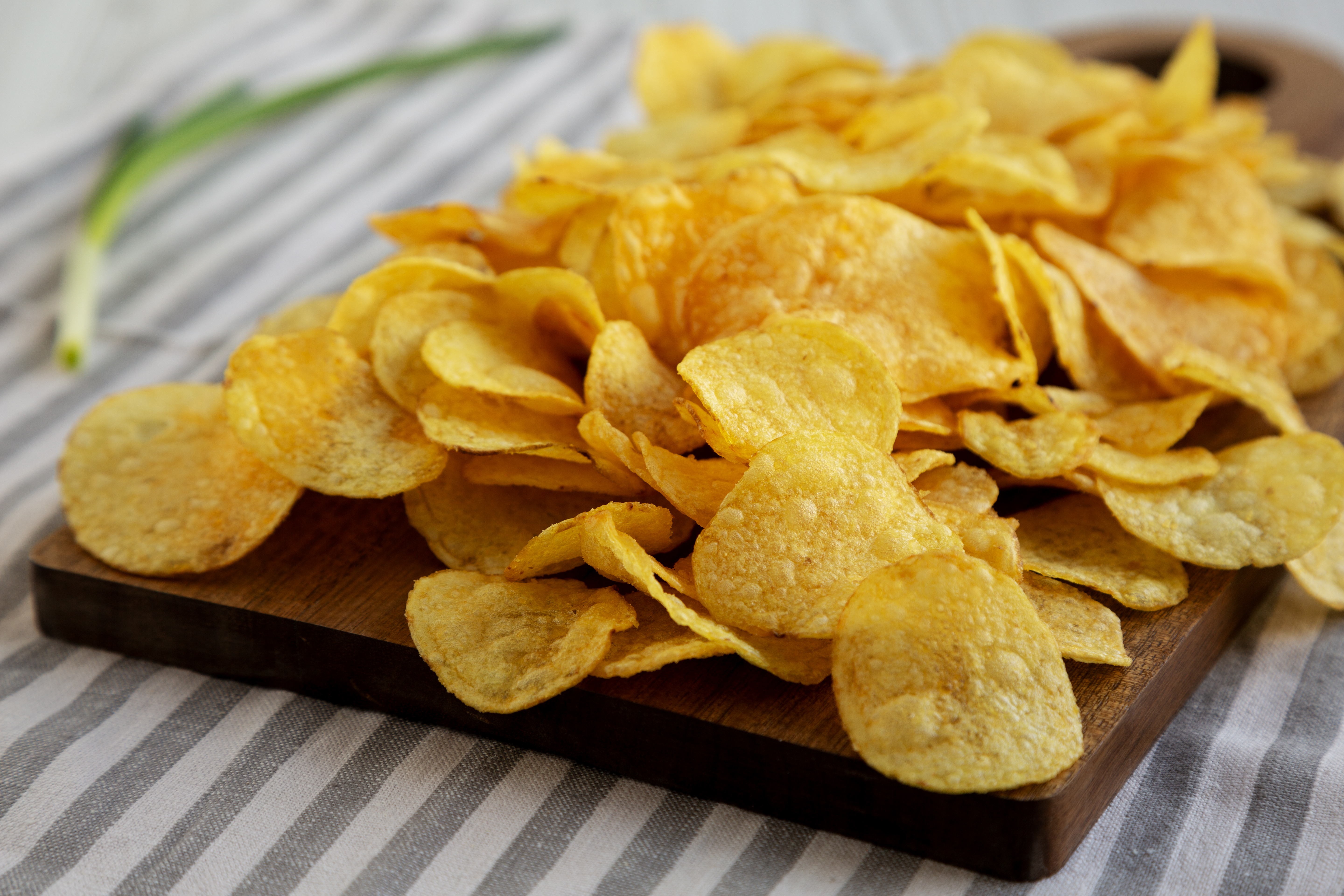14 Foods That Could Be Secretly Triggering Your Brain Fog
In an age where sharp cognition is the ultimate currency, brain fog – that frustrating mix of fuzzy thinking, memory glitches, and mental drag – casts a long shadow over our daily lives. While stress, sleep, and lifestyle play undeniable roles, the food on our plates often harbors insidious secrets, quietly sabotaging our mental prowess. This article delves into 14 deceptively common single foods, peeling back their seemingly innocuous exteriors to expose their hidden cognitive costs. Prepare to confront the dietary culprits you never suspected, and reclaim your mental clarity.
1. Agave Nectar: The Fructose Facade's Secret Agent

Often touted as a "healthy" natural sweetener, **agave nectar** is overwhelmingly (up to 90%) fructose. Unlike glucose, fructose is metabolized almost entirely by the liver. When consumed in concentrated forms like agave, this rapid, unregulated influx can lead to liver stress, contribute to insulin resistance, and trigger systemic inflammation. This inflammatory cascade directly impairs neuronal function, creating cellular "sluggishness" and profound brain fog, independent of overt blood sugar spikes. It's a stealthy metabolic disruptor, far from its natural plant origins.
2. White Bread: The Glucose Rollercoaster's Aftermath

Beyond simple blood sugar spikes, a slice of **white bread** initiates a profound metabolic rollercoaster that directly impacts brain clarity. Its rapid digestion causes an acute insulin response. This intense insulin surge can then lead to an overcorrection, dropping blood sugar too low (reactive hypoglycemia), depriving the brain of its primary fuel. The resulting energy crash and subsequent scramble for glucose create a distinct mental dullness, hindering focus and memory. It’s the sheer speed of absorption, not just the sugar content, that fosters this cognitive turbulence.
3. Parmesan Cheese: Dairy's Casein Conundrum

Beyond simple lactose intolerance, **Parmesan cheese** can be a subtle cognitive disruptor due to its high concentration of casein. This dairy protein breaks down into casomorphins, opioid-like compounds that can bind to receptors in the brain. For sensitive individuals, this binding can induce a mild, sedating effect, contributing to mental fogginess and a feeling of lethargy. Furthermore, the intense processing and aging of Parmesan can make its proteins highly inflammatory for some, triggering systemic responses that cross into the brain.
4. Soy Protein Isolate: The Unfermented Paradox

Found in many vegan protein bars, shakes, and meat alternatives, **soy protein isolate** is a highly processed, unfermented soy product. This concentration maximizes anti-nutrients and provides a large dose of isoflavones, plant estrogens that, in excess, can subtly disrupt delicate thyroid function – a key regulator of metabolism, energy, and cognitive speed. Unlike whole, fermented soy, this isolated form can hinder nutrient absorption and contribute to an inflammatory load, silently undermining mental sharpness and contributing to brain fog.
5. Diet Soda: The Artificial Sweetener Anomaly

The seemingly innocent **diet soda** is a prime delivery mechanism for artificial sweeteners like aspartame or sucralose, which are far from benign. Aspartame, for instance, breaks down into aspartic acid, phenylalanine, and methanol. Excessive aspartic acid can act as an excitotoxin in the brain, overstimulating neurons to the point of exhaustion or damage. This neuronal overload manifests as headaches, anxiety, and a distinct brain fog, as your brain struggles to keep up with the chemical barrage.
6. Energy Drinks: Caffeine's Compounding Crash

While a small coffee might offer a lift, the concentrated caffeine and added stimulants in **energy drinks** create a compounding problem. Chronic high intake leads to rapid tolerance and dependence. The subsequent "brain fog" isn't merely the absence of stimulation; it's a severe withdrawal symptom. Adenosine receptors, over-sensitized from prolonged blockage, become highly reactive, causing profound fatigue, irritability, and dull concentration when the jolt wears off. This cycle of artificial highs and deep crashes leaves the brain exhausted.
7. Instant Noodles: MSG's Excitotoxic Edge

A staple of convenience, **instant noodles** often contain significant amounts of monosodium glutamate (MSG), a potent flavor enhancer and known excitotoxin. As a free glutamate, MSG can overstimulate glutamate receptors in the brain, leading to an imbalance of neurotransmitters. This excessive neuronal firing can cause a cellular "burnout," manifesting as headaches, dizziness, and a pronounced feeling of brain fog, particularly in sensitive individuals. It's a direct chemical assault on neural clarity, hidden in a savory broth.
8. Canola Oil: The Omega-6 Imbalance Culprit

Ubiquitous in processed foods and cooking, **canola oil** is high in omega-6 fatty acids. While essential, excessive omega-6 (especially from industrial seed oils) promotes chronic low-grade systemic inflammation. This inflammation doesn't spare the brain; it can impair neural pathways, reduce neuroplasticity, and contribute to the "cellular noise" that manifests as brain fog. Over time, this imbalance hinders clear thought and memory recall, silently eroding cognitive function from the cellular level up.
9. Salted Pretzels: Sodium's Subtle Brain Drain

Beyond simple thirst, a bag of **salted pretzels** can subtly contribute to brain fog through excessive sodium. Chronic high sodium intake can impair endothelial function, reducing the elasticity of blood vessels, including the tiny capillaries supplying the brain. This can decrease cerebral blood flow over time, compromising consistent oxygen and nutrient delivery vital for optimal cognitive function. The resulting mild cerebral ischemia can lead to a dulling of mental sharpness that goes beyond simple dehydration.
10. Beer: Alcohol's Oxidative Aftermath

Even a few **beers** can induce brain fog far beyond the next-day hangover. Alcohol is a neurotoxin that increases oxidative stress in brain cells, damaging cellular structures over time. More immediately, it profoundly disrupts sleep architecture, particularly REM sleep, which is critical for memory consolidation and cognitive restoration. The "fog" the next day isn't just dehydration; it's a consequence of impaired neuronal repair, fragmented sleep cycles, and a direct assault on brain chemistry.
11. Potato Chips: The Nightshade Inflammation

For a subset of individuals, **potato chips** can be a surprising brain fog trigger. Potatoes, as a nightshade vegetable, contain alkaloids like solanine. While generally safe, in sensitive individuals, these compounds can trigger subtle inflammatory responses, particularly in the gut. This inflammation, even if not causing overt digestive upset, can activate the gut-brain axis, leading to systemic inflammation that crosses into the brain, causing cognitive haziness and fatigue. The high processing and industrial oils in chips further exacerbate this.
12. Pasteurized Egg Whites: The Hidden Sensitivity

While eggs are nutritious, **pasteurized egg whites** can be a source of hidden food sensitivity for some, subtly affecting cognitive function. The pasteurization process can alter the protein structure, making it more challenging for some digestive systems to break down, triggering an IgG or IgA-mediated immune response. This delayed, low-level inflammation can then silently stress the body, impacting blood-brain barrier integrity and neuronal function, manifesting as persistent, frustrating brain fog without overt allergic reactions.
13. Fruit Juice (Concentrate): The Micronutrient Mirage

Often perceived as healthy, many **fruit juice concentrates** are essentially just highly processed sugar water with minimal fiber and micronutrients. While offering some vitamins, the intense processing removes crucial fiber, leading to a rapid sugar spike (primarily fructose) similar to soda, followed by the familiar energy crash. Furthermore, relying on juice as a "fruit" source deprives the brain of essential whole-food micronutrients and antioxidants found in intact fruits, contributing to a subtle but pervasive micronutrient deficit that dulls cognitive function.
14. Microwave Popcorn: Chemical Load and Cognitive Burden

The convenience of **microwave popcorn** comes with a hidden chemical burden. The bags often contain per- and polyfluoroalkyl substances (PFAS), which are endocrine disruptors linked to various health issues, potentially including neurological effects. Furthermore, the artificial butter flavorings can contain diacetyl, linked to respiratory issues and potentially neurotoxicity. The combination of industrial oils, high sodium, and chemical additives creates a low-level, chronic inflammatory load that can silently contribute to brain fog and cognitive dullness over time.
Navigating the Path to Neurological Clarity

Overcoming brain fog isn't about deprivation, but about precise, informed choices. By recognizing these 14 nuanced, often hidden, single food culprits, you gain the power to make dietary decisions that truly nurture your brain. This deeper understanding of food's subtle influence, coupled with holistic practices like stress management, quality sleep, and consistent movement, empowers you to lift the veil of mental fatigue and unlock a state of profound and lasting cognitive clarity.